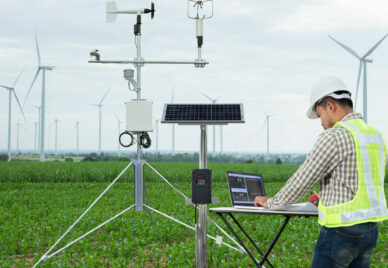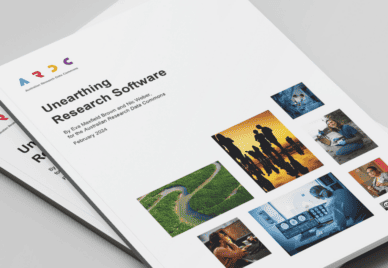Working with Research Software
Software is a first-class output of research. Read our best practice guides to learn how to create, maintain and share research software.

Software is pervasive in modern life and Australia’s research sector is no different. Most researchers say their work wouldn’t be possible without the use of software.
Whether you’re a researcher who codes, a software user, someone who develops research software infrastructure or an institution supporting any of these people, this is your guide to best practice for working with search software.
RELATED NEWS AND EVENTS
Subscribe to the
ARDC Connect Newsletter
Stay up to date on digital research news, events, jobs, guides and more














